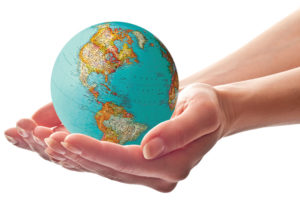 Recently, an online article caught our attention. Published on www.yarnsandfibers.com, the article is entitled, “Dutch Govt ensure sustainable garment production and textile supply chain,”. It discusses The Netherlands Government’s recent efforts to bring together textile industry participants, trade associations, and interested NGOs to work together to encourage sustainability efforts and good working conditions in that industry. This effort is a voluntary agreement, not a law, and the Dutch government has yet to secure funding. Still, the initiative demonstrates the extent to which supply chain issues are no longer merely organizational or business issues, but now involve the complex confluence of business, industry, law, social policy, human rights, politics, and international relations. The increase in supply chain transparency regulations are evidence of this fact, but supply chain realities go far beyond transparency laws in many instances.
Recently, an online article caught our attention. Published on www.yarnsandfibers.com, the article is entitled, “Dutch Govt ensure sustainable garment production and textile supply chain,”. It discusses The Netherlands Government’s recent efforts to bring together textile industry participants, trade associations, and interested NGOs to work together to encourage sustainability efforts and good working conditions in that industry. This effort is a voluntary agreement, not a law, and the Dutch government has yet to secure funding. Still, the initiative demonstrates the extent to which supply chain issues are no longer merely organizational or business issues, but now involve the complex confluence of business, industry, law, social policy, human rights, politics, and international relations. The increase in supply chain transparency regulations are evidence of this fact, but supply chain realities go far beyond transparency laws in many instances.
Best practices supply chain companies have known this for some time. Coca-Cola famously has been working with NGO Oxfam International to prevent “land grabbing” in its sugar supply chain (the practice of taking indigenous land without securing the informed consent of affected local communities). Rainforest Alliance openly invites companies to work with them to analyze and improve their supply chains’ sustainability and corporate social responsibility records. Many companies in the coffee, chocolate, tea, building supplies, and other industries have taken them up on it.
Working with NGOs on supply chain issues can be tricky, but usually it is better than working against them. Companies with negative reputations in the NGO world often become the targets of bad publicity. Some NGOs are easier to work with than others, and some have more resources than others. Back to Rainforest Alliance: Its website boasts a “Supply Chain Services” section.
NGOs can also help reach and work with the communities that are affected by corporate supply chain operations. Media coverage is now replete with stories about poor working conditions in industries and areas abroad. The Department of Labor maintains a list of more than 350 industries and regions where trafficked or child labor is believed to be widespread. Yet, many NGOs understand that, in many cases, these issues arise not because certain sectors are uncharacteristically full of bad actors. To the contrary, often a more nuanced view is correct: The local industry cuts corners and engages in practices we find unacceptable because they don’t have the technology or tools needed to harvest their product any other way. NGOs can assist with regional training and technology enhancement to improve the margins on suspect products, and eliminate unwanted practices.
Increasingly, in supply chains, legal and operational experience is essential, but so too is public policy expertise – mirroring our complex world.

